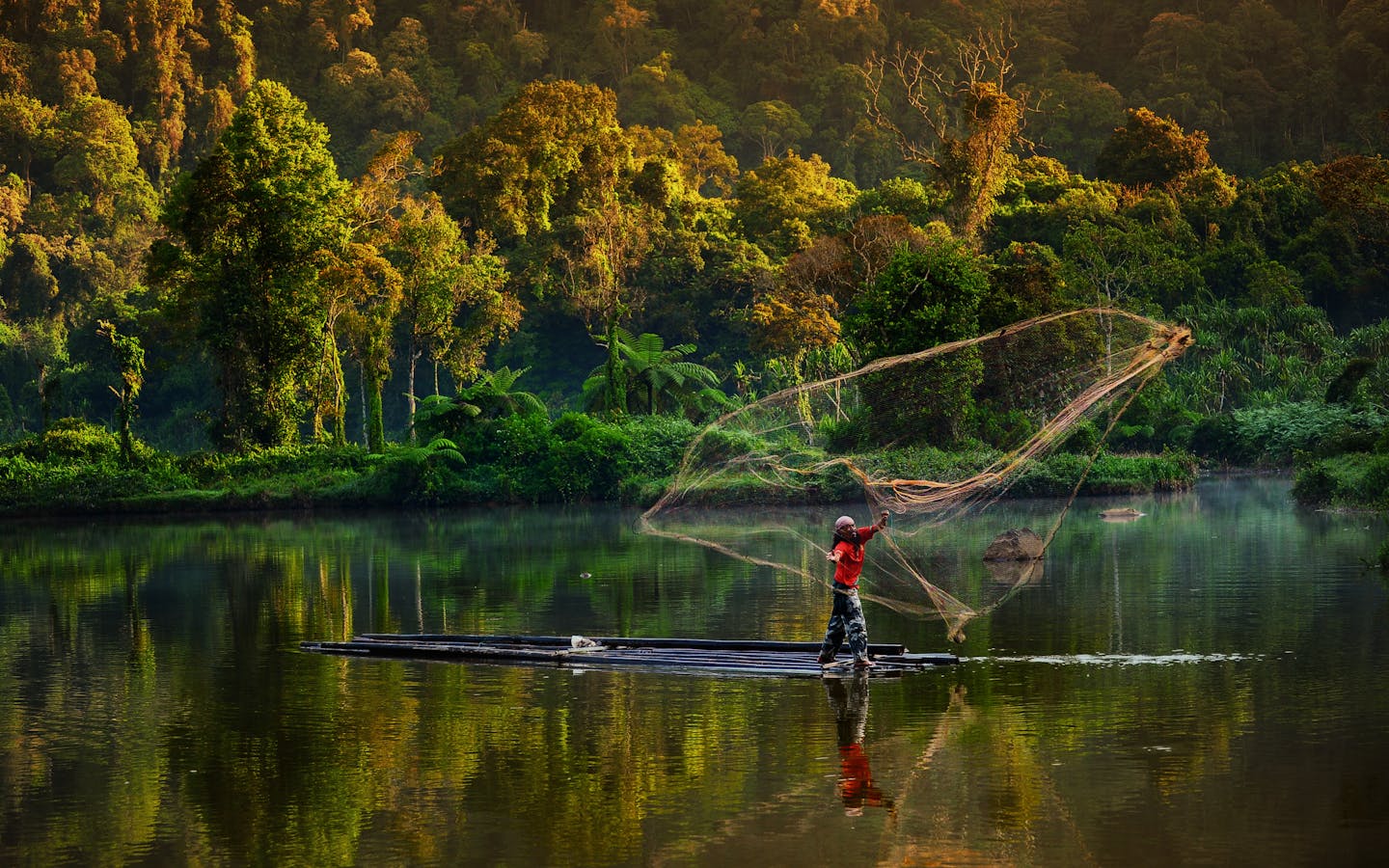Fisheries in lakes, rivers and wetlands are essential sources of food and income — especially in poor and marginalized communities. They provide livelihoods for 60 million people and are a primary source of protein for billions more around the world.
These inland fisheries depend on the health of native fish populations and the freshwater ecosystems that sustain them. But increasingly these habitats face threats — from overfishing and pollution to changes in water distribution due to dams and climate change.
Responsibly managed inland aquaculture can be a complementary source of freshwater food and livelihoods, but irresponsible practices can imperil wild fisheries. Conservation International is working to advance sustainability in both wild and farmed freshwater fisheries, recognizing the important role they play for many of the world’s most vulnerable communities.
Our role
Despite their vital contributions to human well-being and biodiversity, freshwater ecosystems receive only a small percentage of the funding dedicated to nature conservation — and inland fisheries are similarly undervalued. Conservation International works with partners to raise awareness of the importance of inland fisheries and promote the conservation of freshwater ecosystems. We do this by producing scientific research, demonstrating impact, and convening conservation and development partners around shared objectives.
In many countries, aquaculture is an important and growing part of freshwater food systems. Because irresponsibly developed aquaculture can threaten native fish and fisheries, Conservation International is working with leading companies to make that industry more sustainable.
Our plan
Producing science-based arguments
We are seizing opportunities to integrate and elevate inland fisheries within global commitments and conventions, which influence governments’ decision-making and investment by multinational public and private investors. We do this through research collaborations and formal policy recommendations that support sustainable inland fisheries.
Demonstrating impact
In the Mekong River Basin in Cambodia — where freshwater fisheries account for two-thirds of the country’s protein consumption — Conservation International follows a science-based approach to support fishery production, biodiversity conservation and livelihoods. Through measurable improvements in food security and economic productivity, we are helping to demonstrate the importance of inland fisheries in provincial and national development decisions and fostering replication of this model in other basins.
Convening key actors
The conservation and development sectors each aim to promote healthy inland fisheries, but they can lack common objectives and a shared framework for collaboration. Conservation International is building a global multi-stakeholder alliance to incorporate inland fisheries into global development and conservation agendas.
By the numbers
Over 40 percent of global fish species are found in freshwater ecosystems.
Up to 58 million people around the world are employed by the inland fisheries sector with women making up more than half of that workforce.
Over 40 percent of global inland fish capture is reported from 50 low-income, food-deficit countries.
Programs
Ruos Sophy and Keo Mao are just a few of millions who depend on Cambodia's Tonle Sap lake for their protein and their livelihoods. They live on the lake, they eat from the lake, and they support their family through sustainable fishing practices. Conservation International (CI) has been working with Sophy, Mao, and other villagers throughout the Tonle Sap to ensure the lake continues to support the people who depend on it. By teaching sustainable fishing practices, preventing deforestation in the region, and encouraging smart business decisions, CI has managed to prove that improving lives and protecting the environment can go hand in hand. | Learn more: http://www.conservation.org/tonle-sap Follow CI on Twitter: http://www.twitter.com/ConservationOrg Follow CI on Facebook: https://www.facebook.com/conservation.intl
Improving lives in Tonle Sap Lake
Conservation International is developing a program to support the resilience of fisheries and families in Cambodia's Tonle Sap Lake. This project integrates conservation, governance, science, microfinance and livelihoods — building on the successful work that we have undertaken with lake communities since 2008. The Freshwater Health Index provides a framework for measuring this model’s impact.

Investing in responsible aquaculture
In 2020, Conservation International Ventures — our impact investment fund — made a $500,000 loan to Victory Farms, the fastest growing aquaculture company in Africa. Victory Farms operates on Lake Victoria, home to an extraordinary array of endemic fish species, many of which are highly threatened. Conservation International is working to develop and test a model whereby native fish conservation, sustainable inland fisheries and responsible aquaculture can form a ”three-legged stool” that supports Lake Victoria’s ecosystems, creates much-needed jobs and provides a critical food source to local communities.




